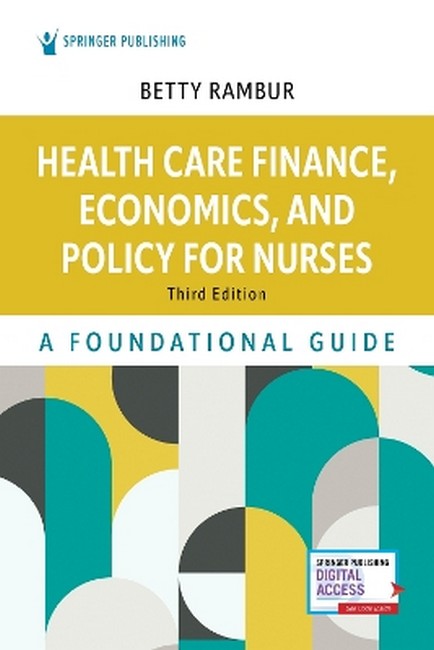Description
A Note from the Author How to Use This Text: A Note to Faculty Acknowledgements Springer Publishing Resources Section I: The Context of Health Care in the U.S. Chapter 1: How the Money Works: Nurses, Economics, Finance, and Reimbursement Chapter 2: A Story of Unintended Consequences: How Economic and Policy Solutions Create New Challenges Chapter 3: Navigating the Health Care Landscape Shaped by the Patient Protection and Affordable Care Act of 2010 and Subsequent Federal Legislation Chapter 4: Payment Reform: Improving Care Delivery by Changing Who is Reimbursed, How, and For What Section II: Health Care Economics: A Pragmatic Overview Chapter 5: How Health Care Markets Differ from Other Markets...and Why it Matters Chapter 6: Health Care Outcomes, Cost, Safety, and Value: The Critical Role of Information in Health Care Markets, Decision-Making, and Payments Chapter 7: Market Entry, Exit, and Antitrust Law - Why it Matters to Nurses Section III: Ethics and Economics in an Age of Reform: Demographic Shifts, Political Tensions, and Recognition of Increasingly Scarce Resources Chapter 8: What is Ethinomics? Chapter 9: Models to Guide Ethical Decision-Making Section IV: Pulling it All Together: Using Your Knowledge of Health Care Finance, Economics, and Ethics to Improve Health and Health Care Chapter 10: Governance and Organizational Type Chapter 11: Building Skills for Board Membership Chapter 12: Applying Health Economics to Improve Health Care through Federal and State Policy Formation Chapter 13: Lessons from the COVID-19 Pandemic and a Look to the Future Chapter 14: The Health Care Workforce: What Nurses Need to Know Section V: Epilogue Chapter 15: Living and Leading in a Changing World Appendix A: Medicare Eligibility Appendix B: Key Concepts in Health Finance, Economics, Policy, and Ethics: Level Setting Pre-Survey Appendix C: The Policy Analysis Process Index
Betty Rambur, PhD, RN, FAAN, is the Routhier Endowed Chair for Practice and professor of nursing at the University of Rhode Island. She was formerly professor of nursing and health policy and at the University of Vermont and from 2000 to 2009 served there as an academic dean. In this role, she led the 2002 merger of the School of Nursing and the School of Allied Health Science to establish the College of Nursing and Health Sciences. These experiences build on Dr. Ramburs substantive leadership history in health policy and payment reform. From 1991-1995 she led North Dakotas 33-member, statewide public/private health financing and delivery reform effort that led to omnibus legislation. In 2013, Dr. Rambur was appointed to Vermonts Green Mountain Care Board by Governor Peter Shumlin and served in this role until 2017. The five member Green Mountain Care board is a quasi-judicial body. It oversees Vermonts financing, payment and delivery reform and holds broad regulatory, innovation, and evaluation authority. In May 2020, Dr.. Rambur appointed to the Medicare Payment Advisory Commission by the U.S. Comptroller General, Director of the U.S. Government Accountability Office. MedPAC is an influential, nonpartisan group of policy experts who advise the U.S. Congress on Medicare payment and policy. She was reappointed to this role in 2003. She has also served on numerous advisory and governing boards, including the boards of trustees of an academic medical center and an independent community hospital.

